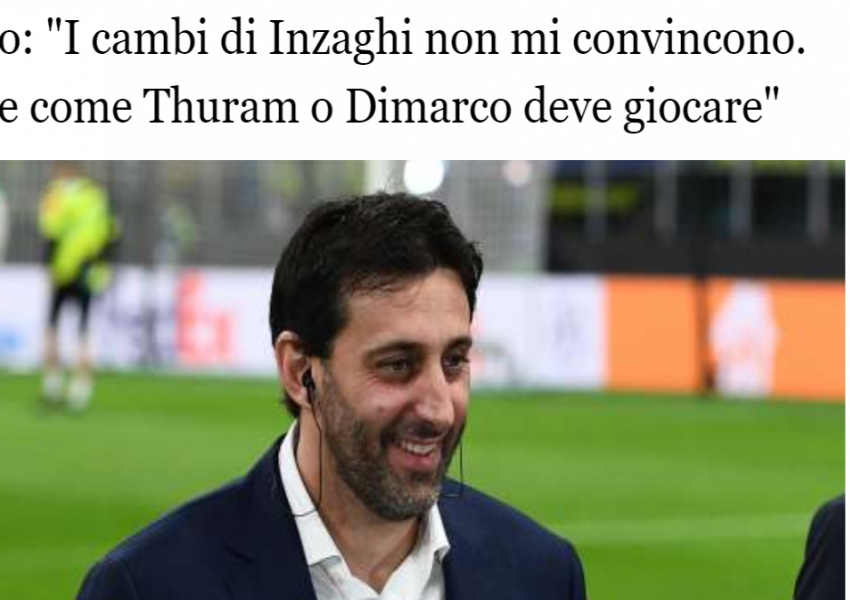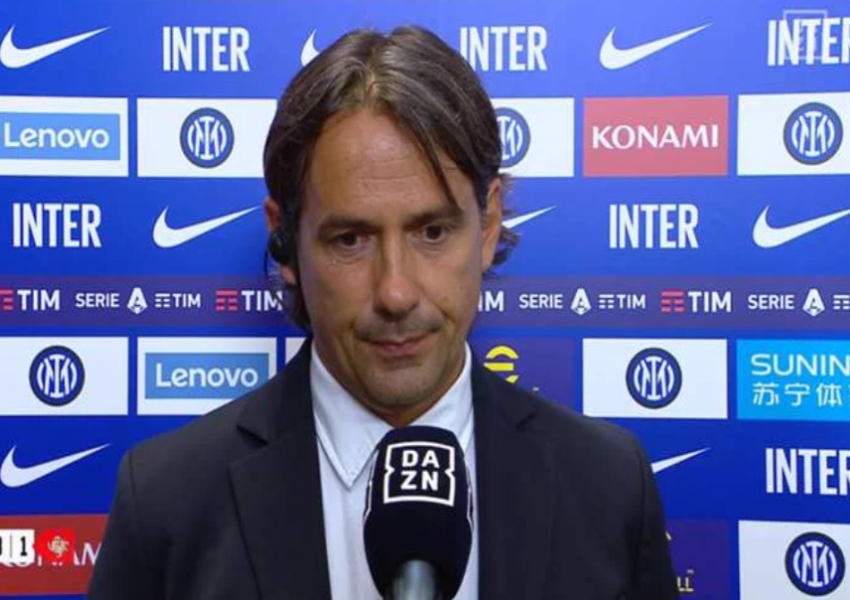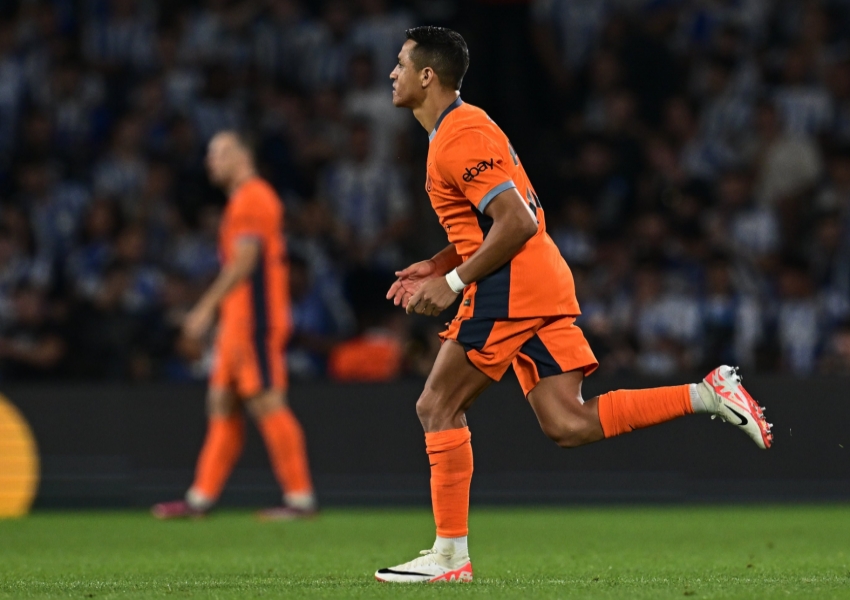Inter Milan's Major Transformations: New Formations Emerge and a Potential Italian National?
Inter Milan is navigating a challenging and critical phase as they respond to intense public scrutiny and high expectations. The atmosphere surrounding Inter is arguably one of the most hostile among Europe’s top clubs. After a draw with Real Sociedad, waves of criticism flooded in from various quarters, including notable figures like journalist Biasin, who pointed fingers at Asllani, and legendary player Milito, who criticized Simone Inzaghi’s excessive rotations. While their observations were reasonable, the subsequent uproar among keyboard warriors dramatically shifted the narrative. Despite starting the season with four consecutive wins, a single draw plunged Inter back into a storm of negativity, illustrating the delicate balance of public perception.

The heightened expectations following the winning streak made the draw more difficult to digest. However, it's essential not to overlook several positive signs, particularly three significant changes implemented by Inzaghi that have shown potential despite the criticism.

Bold Rotations in the Champions League
In the crucial Champions League opener against Real Sociedad, Inzaghi made a bold decision to rotate his squad extensively. Post-match, Inzaghi expressed that he wished to rotate even more players due to the impact of the FIFA virus and the grueling derby. He limited the changes to five because of the tough opposition. This decision drew criticism, with many accusing him of underestimating the opponent. However, it’s crucial to consider the perspective that in previous seasons, Inzaghi would not have dared such significant rotations in an important Champions League match, regardless of how exhausted his starters were.

This season, Inzaghi repeatedly mentioned that he has learned not to be swayed by external criticism. Unlike his earlier years when he would respond to critiques, he now shows indifference and disdain. It’s widely acknowledged in football that a rising coach must not be overly influenced by external opinions and must exhibit necessary courage, confidence, and decisiveness. Inzaghi is gradually embodying these qualities, marking a significant shift in his approach.
Emergence of a New Formation
A pivotal change was seen in the latter stages of the match against Real Sociedad. Despite being on the back foot for most of the game, Inter launched a comeback that nearly clinched three points. Football analyst Capello remarked that had the game continued for just five more minutes, Real Sociedad would have been defeated. This is partly due to Sociedad's fitness limitations but also reflects Inter’s own evolution. With the introduction of Alexis Sánchez, Inter had three forwards on the pitch, but they didn’t play a traditional three-striker formation. Sánchez operated more like a midfielder, showcasing a 3-4-1-2 setup, which altered the midfield dynamics significantly.
Typically, Inter’s midfield features a defensive triangle with one player deep and two slightly ahead. However, in this scenario, the midfield transformed into an offensive triangle with two players deep and Sánchez further up. This tactical flexibility could prove advantageous for players like Asllani, Klaassen, and Frattesi, who struggle as lone defensive midfielders but thrive in a dual pivot.
Frequent Positional Changes
Inzaghi has also shown a willingness to experiment with player positions. During the preseason, he tried shifting Barella to the left flank. In league matches, he pushed Mkhitaryan forward into attacking roles. In the Champions League clash against Real Sociedad, amidst debates over whether Dimarco or Augusto should start, Inzaghi played both, with Dimarco positioned as a left center-back. This adjustment became a turning point in the match.
These changes illustrate Inzaghi's newfound tactical flexibility and willingness to break free from established formations and player roles. This is no small feat, especially in Italy, where public opinion is highly critical and even minor deviations from the norm can invite severe backlash. Historically, Italian coaches like Sarri are known for their rigid adherence to set formations and strategies. Inzaghi’s willingness to adapt and innovate marks a significant departure from this tradition.
A New Found Confidence
Several factors might explain Inzaghi’s transformation. His recent contract renewal likely provided job security, reducing fear of losing his position. The experience of reaching the Champions League final broadened his perspective, and the departure of some senior players might have alleviated concerns about managing the locker room. Furthermore, being shortlisted for the FIFA Best Coach award could have boosted his confidence.
Inter underwent significant changes in the off-season, with 12 players leaving and 12 new arrivals. Expecting the previous season's tactics to work flawlessly with a revamped squad is unrealistic. Strategies tailored for players like Dzeko may not suit newcomers like Arnautović. Similarly, methods effective for Brozović may not be ideal for Frattesi or Klaassen. Inzaghi’s adaptability during this critical integration phase is crucial.
Public Criticism and Inzaghi’s Response
Public opinion can be fickle. Critics who now argue against squad rotations might have otherwise complained about new players not getting enough time. Even if Inter were to win another treble, these detractors would likely never be satisfied. Inzaghi’s ability to tune out this noise and focus on his vision is vital.
Potential for New Italian Nationals
Recently, there has been renewed discussion about Augusto potentially joining the Italian national team, spurred by credible sources like Romano. Although Augusto prefers waiting for a call-up from Brazil, Italy’s persistent interest and the expanded role he’s finding at Inter could sway his decision. The possibility of Dimarco and Augusto coexisting on the pitch opens more opportunities for the Brazilian, highlighting how Inzaghi’s willingness to change can benefit the team.
In conclusion, the early signs of this season suggest that Inzaghi is evolving into a more confident, adaptive, and innovative coach. His bold rotations, new formations, and strategic flexibility reflect a significant departure from his previous approach. These changes could be crucial as Inter navigates a challenging season with a heavily modified squad. Inzaghi's ability to remain unfazed by criticism and his openness to tactical experimentation could be the keys to Inter’s success.
Copyright Statement:
Author: mrfootballer
Source: Mrfootballer
The copyright of this article belongs to the author. Reproduction is not allowed without permission.
Recommended Blog
- First Round of Olympic Men's Football: Argentina Bolstered by World Champions, Spain Focuses on Development
- Intense Competition at Inter Milan Sparks Extra Training Frenzy: Italian Media Predicts Striker Taremi to Break Through
- K League 1 Round 24: Gimcheon Sangmu Eyes Revenge from the Top, Pohang Steelers Seize Opportunity to Climb to the Summit
- Serie A Sees 15% Salary Reduction Over Five Years: Only Two Black-and-Blue Clubs Buck the Trend, Oak Tree Capital's Primary Goal Revealed
- Inter's Victory Marred by Two Major Setbacks: Four Forward Options, Inzaghi Suggests a Dual-Solution Strategy
- Premier League Round 6 Preview: North London Derby Set to Ignite, Liverpool Navigates European Fixtures with Ease
- Inter Milan's Strategic Leap: Midfield Maestro Represents the Dream Chasers
- Serie A Round 5 Preview: AC Milan's Confidence Restoration and Juventus' Assured Offense
- Inter Milan's Major Rotation Highlights Two Disappointed Players: Newcomers Seek Turning Point Amid Double Blow
- Ligue 1 Round 6: Monaco Must Watch Out for Opponent's Striker, Lyon Banks on World Cup Winner